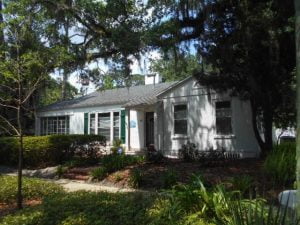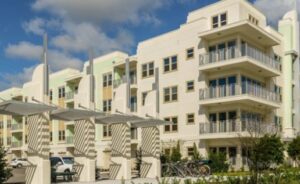Structural Inspections
Contact: +1-321-355-6052
What are Building Structural Inspections in Florida?
Building structural inspections are professional assessments conducted by a licensed engineer to evaluate the integrity, safety, and code compliance of a structure’s critical components, such as foundations, load-bearing walls, roofs, beams, and columns. These inspections are crucial for property transactions, renovations, insurance claims, and post-disaster recovery in Florida.
Building Structural Inspections in Florida
Expert Building Structural Inspections in Florida by Licensed Engineers
Your property’s safety and value depend on a strong structure. Whether you’re a homeowner, condo board, investor, or commercial builder, our licensed structural engineers offer comprehensive structural inspections across Florida to assess safety, compliance, and long-term durability.
We inspect residential, multi-family, high-rise, and commercial buildings — ensuring every structure meets Florida Building Code standards, especially in high-risk zones prone to hurricanes, sinkholes, and corrosion.
Why Building Structural Inspections Matter in Florida
Florida’s unique climate and geography demand structural vigilance:
🌀 Hurricanes & Wind Loads: Ensure your roof, walls, and framing can withstand extreme weather.
🌊 Flood Zones & Water Damage: Catch hidden issues like foundation shifting, erosion, or concrete spalling.
🧱 Aging Condo Infrastructure: Comply with Florida’s milestone inspection laws (e.g., SB 4-D).
🏘️ Real Estate Transactions: Secure engineering reports before buying or selling.
🛠️ Renovation Projects: Get professional clearance before removing or altering load-bearing elements.
🔍 We help uncover what’s beneath the surface—before it’s too late.
Our Structural Inspection Services Include:
Foundation and Slab Inspections
Detect shifting, cracking, settlement, and water intrusion issues.
Load-Bearing Walls & Framing Evaluations
We inspect steel, wood, and concrete framing systems to ensure stability and alignment.
Roof and Truss System Analysis
Inspect hurricane ties, connections, sheathing, and potential uplift risks.
Balcony & Stairwell Inspections
Required for condos and hotels. Identify corrosion, deflection, and safety hazards.
Concrete & Masonry Deterioration
Check for signs of spalling, rebar rust, cracks, and delamination in aging buildings.
Code Compliance and Safety Reviews
Verify compliance with the latest Florida Building Code (FBC) and applicable city ordinances.


Who Needs a Structural Inspections in Florida?
🏠 Homeowners – after hurricanes, before selling, or if cracks or sagging appear
🏢 Condo Associations – for milestone inspections and maintenance assessments
🏗️ Contractors & Architects – pre-renovation load path analysis
🧾 Insurance Adjusters – for storm damage claims
🏛️ Government & Schools – ensure structural safety in public buildings
Areas We Serve Across Florida
We perform inspections statewide, including:
South Florida – Miami, Fort Lauderdale, Naples, West Palm Beach
Central Florida – Orlando, Lakeland, Tampa, Kissimmee
North Florida – Jacksonville, Gainesville, Tallahassee
East Coast – Daytona Beach, Melbourne, Cocoa Beach
Book a Certified Structural Inspection Today
Ensure your building is safe, compliant, and future-proof. Our licensed engineers deliver detailed reports, fast service, and engineering insight that protects your investment.
📞 Call Now: (321) 355-6052
📩 Schedule Inspection Now
📋 FAQ Section
Q: What does a structural inspection include in Florida?
A: It includes evaluation of the foundation, load-bearing walls, roof systems, concrete integrity, balconies, and general structural stability. Reports may be sealed by a licensed engineer.
Q: When is a structural inspection required?
A: After storm damage, before property transactions, during renovations, for aging buildings, or when mandated by law (e.g., SB 4-D).
Q: Who can perform a structural inspection in Florida?
A: Only a licensed structural engineer or PE registered with the Florida Board of Professional Engineers.
Q: How much does a structural inspection cost?
A: Pricing varies based on size, complexity, and location. Most residential inspections range from $400 to $1,500. Request a custom quote.
Q: Are your inspections valid for insurance or legal use?
A: Yes. We provide stamped reports that are accepted by insurers, adjusters, realtors, and legal professionals.
Florida Building Structural Inspections | Certified Engineer Reports
Get a licensed structural inspection for homes, condos, and commercial properties in Florida. Engineer-certified reports for storm damage, real estate, and safety. https://condomilestone.com
We provide a full range of inspection services including:
Miami Building Structural Inspections
Miami Building Structural Inspections are also known as a Due Diligence Inspection or structural engineering condition survey. These are physical evaluations of an existing building’s structural systems, components and site improvements. Building condition typically includes items such as site characteristics, structure, roof, mechanical, electrical, plumbing, fire/life safety, and access and egress. Most commonly Miami building structural inspections are performed prior to a real estate transaction for commercial property. EMA Structural & Forensic engineers utilize the ASTM Standard E2018-99 as a guideline for conducting Property Condition Assessments.
EMA has Structural engineers committed to providing our clients with detailed impartial Miami building condition survey reports which are certified by Registered Professional Engineers.
Building condition survey
Miami Building structural Inspections
Demolition and Plans Review
Construction / Building Defects
Commercial Construction Monitoring
Foundation
Roof, gutter, downspouts, and chimneys
Stairs, rails, and porches
Exterior surfaces Windows and doors
Structural Engineers Orlando
EMA Structural Engineers Orlando analyze, design, plan, and research structural components and systems to achieve design goals and ensure the safety and comfort of users or occupants. Their work mainly considers safety, technical, economic, and environmental concerns, but they may also consider aesthetic and social factors.
Structural engineering is usually considered a specialty within civil engineering, but it can also be studied in its own right. In the United States, most practicing structural engineers are licensed as civil engineers, but the situation varies from state to state. Some states have a separate license for structural engineers required to design unique or high-risk structures such as schools, hospitals, or skyscrapers. In the United Kingdom, most structural engineers in the building industry are members of the Institution of Structural Engineers.


Residential Commercial Buildings Structural Engineers
Typical structures a structural engineer designsA structural engineer may also design other forms such as oil rigs, space satellites, aircraft, and ships, including buildings, towers, stadiums, and bridges. Other systems include oil rigs, space satellites, aircraft, and vessels. However, it may also be designed by a structural engineer. Most structural engineers are employed in the construction industry, however, there are also structural engineers in the aerospace, automobile, and shipbuilding industries. In the construction industry, they work closely with architects, civil engineers, mechanical engineers, electrical engineers, quantity surveyors, and construction managers.
EMA Structural engineers ensure that buildings and bridges are built to be strong enough and stable enough to resist all appropriate structural loads (e.g., gravity, wind, snow, rain, seismic (earthquake), earth pressure, temperature, and traffic) to prevent or reduce the loss of life or injury. We do Structural Finite Element Analysis, Structural Peer Review, and related engineering work in compliance with the Florida Building Code. We also design structures to be stiff enough not to deflect or vibrate beyond acceptable limits. Human comfort is an issue that is regularly considered limited. Fatigue is also an essential consideration for bridges, aircraft design, or other structures that experience many stress cycles over their lifetimes. Consideration is also given to the durability of materials against possible deterioration, which may impair performance over the design lifetime.
EMA Structural Engineers Florida has experience with many residential and commercial projects, including mid/high-rise buildings, retail spaces, hotels, churches, multi-family buildings, condominiums, custom homes, townhouses, mixed-use structures, hoist engineering, steel frames, product testing, and various types of inspections. Our structural engineers in Miami, Tampa, and Orlando can design any layout. Here is a list of our current products and systems, allowing you and your clients more choices in design and construction. Using the following types of innovation:
STRUCTURAL ENGINEERS POST-TENSIONING DESIGN:
Longer spans in design and greater flexibility. Economical method for high-rise buildings
FINITE ELEMENT ANALYSIS:
Greater precision and efficiency in structural design and analysis of structures.
TWO-WAY CONCRETE FLAT FLOOR DESIGN:
More freedom in structural design; flexible structural column placement. Elimination of beam support under floors.
STEEL FRAME DESIGN:
A viable alternative to high concrete costs and extensive precast concrete waiting times.
TILT-UP CONSTRUCTION:
An often economical design choice for offices, warehouses, etc.
PRECAST CONSTRUCTION:
Such as precast beam/joist systems and hollow core planks), allowing more options for contractors.
RENOVATION + REHAB:
Often, it is a low-cost alternative to new construction in urban areas where a corrosive environment has deteriorated the building’s integrity.
TUNNEL FORM BUILDINGS:
An increasingly popular time-saving option among developers for ease of use and fast construction.
TIMBER CONSTRUCTION:
Enabling increased flexibility and decorative structural design choices.
https://www.yelp.com/biz/ema-structural-forensic-engineers-orlando-5
https://sites.google.com/view/new-condo-milestone-inspection
https://sites.google.com/view/structuralengineersorlando/?pli=1
EMA structural damage roof& building inspections
EMA Project construction Structural inspections.
Hurricane damage structural Inspections
Quality Assurance Structural Inspections
Structural damage inspections
Fire Damage Structural inspections
Residential/commercial Structural Inspections
Structural Sinkhole Inspections